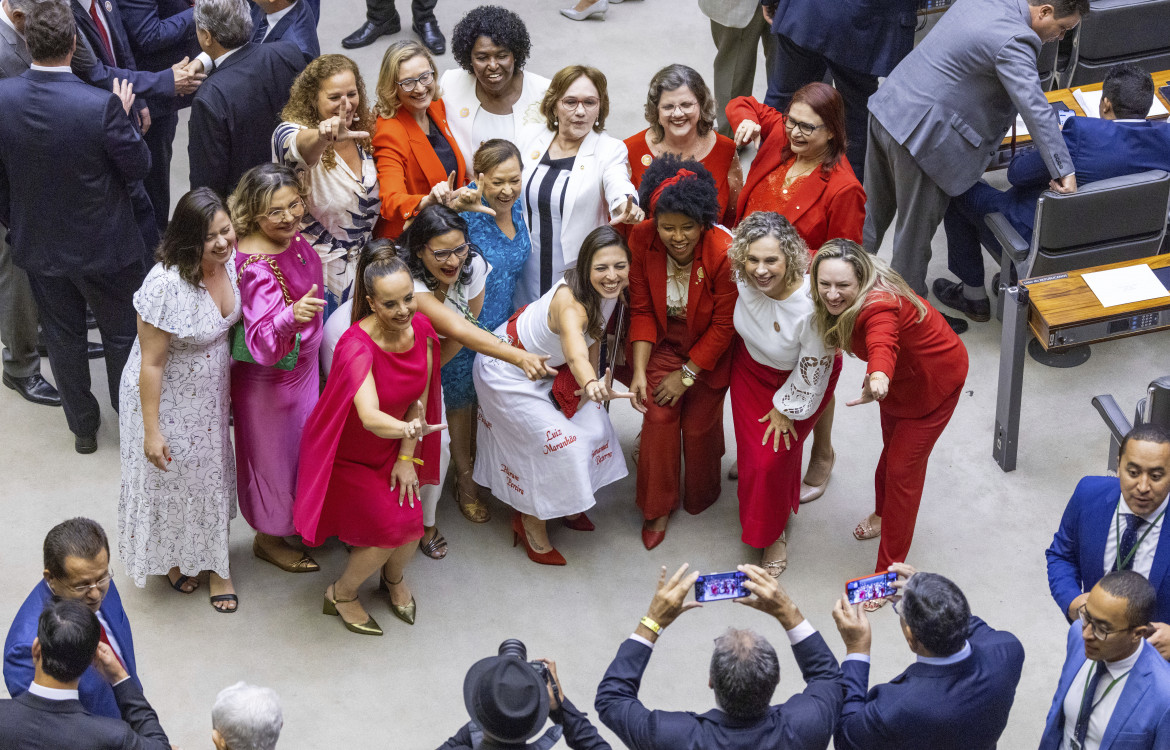Analysis
Women gave Lula his mandate, and they’ll help lead his government
The road to gender equality is an uphill one, especially after Bolsonaro's four-year rule, but today there are more and more women and feminist activists engaged in leadership roles.

Women enabled Luis Inácio Lula da Silva to become Brazil’s 39th president. Across all social classes, the majority of Brazilian women voted for him, granting him his narrow victory over the outgoing president, Jair Bolsonaro, according to Datafolha data.
The third Lula government has the largest number of female ministers in history. Among the 11 women ministers, there are some holding portfolios with high symbolic value – such as Anielle Franco who now leads the Minister of Racial Equality, the sister of Marielle, a Rio de Janeiro city councilwoman who in March 2018 was murdered by militias for political reasons.
On Wednesday, the Franco family announced that they welcomed the launch of an investigation led by the federal police, which has sent fear through the Bolsonaro family, which has ties to one of the militia killers.
Three women now have high government roles responsible for the defense of the Amazon: Sonia Guajajara, Minister of Indigenous Peoples; Joênia Wapixana, president of the Indio National Foundation; and Marina Silva, Minister of the Environment.
On Tuesday, Brazil’s new female ministers all gathered at the inauguration ceremony of the Minister of Women, Cida Gonçalves. The new ministers, from the stage, chanted together with the representatives of the feminist movements in the audience: “Beware, machista, Latin America is all feminist!”
Gonçalves’ portfolio is “for women. For all the women who make up our society: black, white, indigenous, LGBT+, from the cities, from the countryside,” said the newly appointed minister in her speech. Gonçalves, 61, known as Cidinha, is a feminist activist and longtime Workers’ Party (PT) leader from Mato Grosso do Sul, and the ministry she is leading is newly created.
She takes over the attributions of former Bolsonarist minister Damares Alves, who was a “very effective activist, driven by the most extreme Evangelical fundamentalism with Nazi overtones. Efficient in the dismantling of human rights, in fanatical anti-abortion militancy, and in ground-level action against the protection of the indios,” wrote Professor Teresa Isenburg.
The right to elective abortion is sensitive ground in Brazil’s very religious society. Lula has tried to open the debate in the past, but has always had to backtrack on his plans. Gonçalves intends to address what “is a public health issue, but we have to be careful before opening a parliamentary debate, as we risk losing more than we’ll gain,” she said, referring to the quagmire in Congress, where Lula is in the minority and Evangelical groups are very influential.
And then there are the other women heading some of the most prominent ministries: Menezes, a singer, at Culture; Nísia Trindade with the task of restoring the prestige of the country’s universal health system; and centrist Simone Tebet at the Ministry for Economic Planning.
Two women will preside over the state banks Caixa Econômica Federal and Banco do Brasil. PT president Glesi Hoffman is a prominent figure in Brazilian politics. In 2016 she led the parliamentary defense against the impeachment of former President Dilma Rousseff, establishing herself as a determined political leader, and assisted Lula in putting together his government.
Nevertheless, Brazil is still not a welcoming place for women. There is fewer than one female congresswoman for every five congressmen in Congress: 18 percent in the House, 17 percent in the Senate. These are the highest proportions ever recorded. Of the twenty-seven federal states, only Rio Grande do Norte is governed by a woman, Fátima Bezerra from the PT.
In the public sector, women occupy 40 percent of the workforce, but just 26 percent at the management level. They earn lower wages for the same jobs, and the unemployment rate for women is double that of men.
Violence against women, especially in the household, produces striking statistics: in the first six months of 2022, there were 700 cases of femicide; in 2021, 66,000 women were victims of rape and 230,000 were victims of physical assault in the home, according to data from the Anuário Brasileiro de Segurança Pública. And Black women are the most frequent victims: 67 percent of femicide victims and 89 percent of sexual violence victims.
The road to gender equality is an uphill one, especially after Bolsonaro’s four-year rule, but today there are more and more women and feminist activists engaged in leadership roles.
There are small signs of a change: during the inauguration ceremony for the ministers in Lula’s government, everyone, even the more conservative ones, used inclusive language and made frequent references to the feminist agenda. Lula himself has changed his discourse in recent years, and is now stressing “the importance of men participating in domestic and care work.”
Originally published at https://ilmanifesto.it/tutte-le-donne-del-brasile on 2023-01-05
